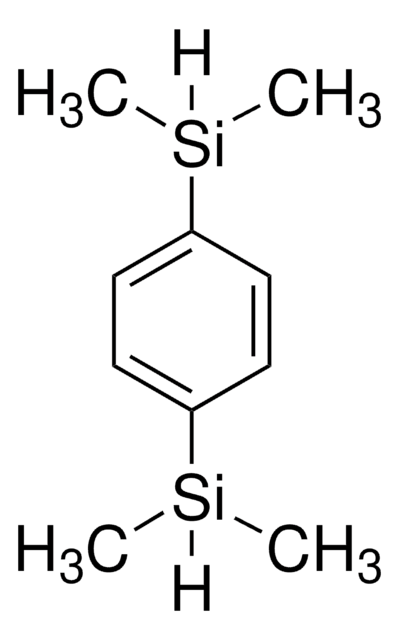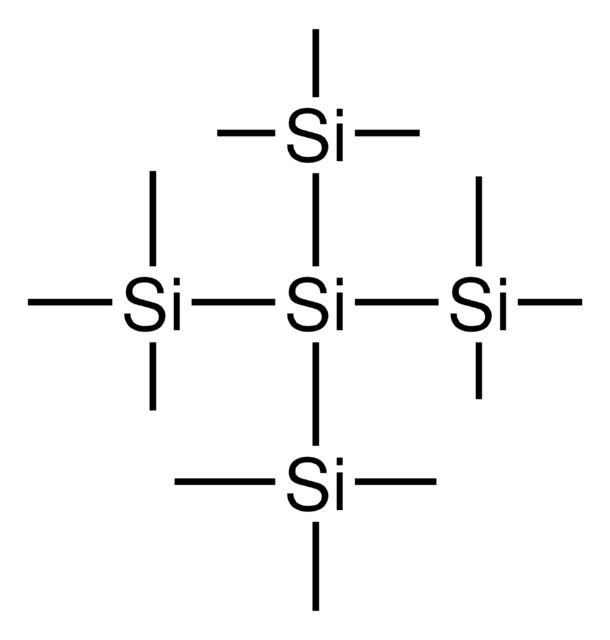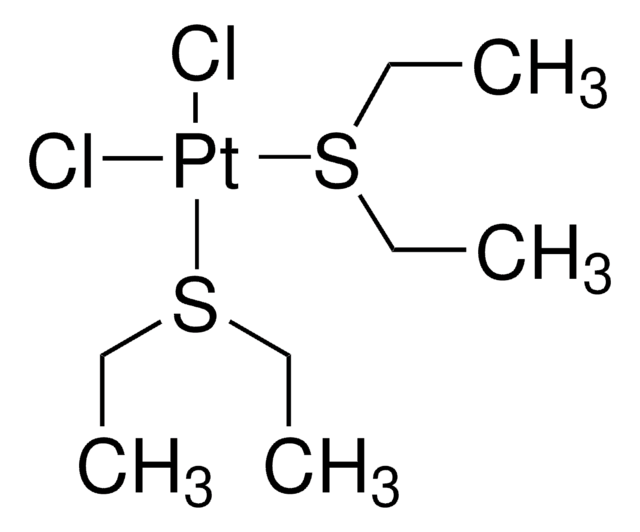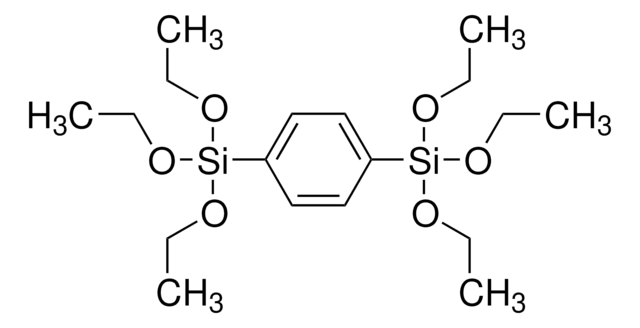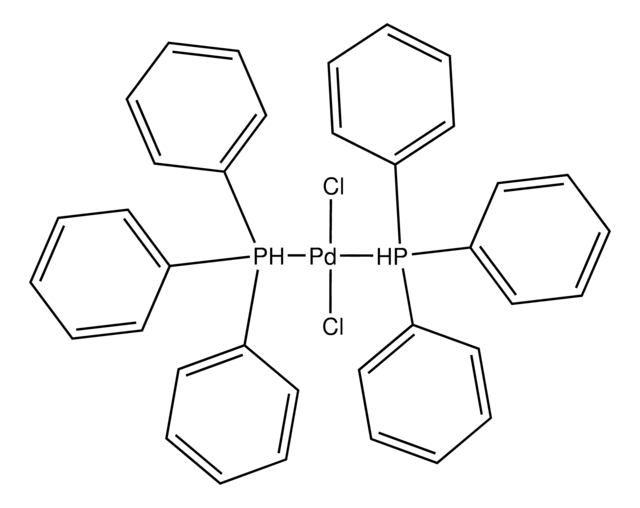438936
1,4-Bis(trimethylsilyl)benzene
96%
Synonym(s):
p-Phenylenebis(trimethylsilane)
Sign Into View Organizational & Contract Pricing
All Photos(1)
About This Item
Linear Formula:
C6H4[Si(CH3)3]2
CAS Number:
Molecular Weight:
222.47
Beilstein/REAXYS Number:
1867055
MDL number:
UNSPSC Code:
12352100
PubChem Substance ID:
NACRES:
NA.22
Recommended Products
Quality Level
assay
96%
form
solid
bp
194 °C/742 mmHg (lit.)
mp
91-94 °C (lit.)
SMILES string
C[Si](C)(C)c1ccc(cc1)[Si](C)(C)C
InChI
1S/C12H22Si2/c1-13(2,3)11-7-9-12(10-8-11)14(4,5)6/h7-10H,1-6H3
InChI key
NVRBTKMAZQNKPX-UHFFFAOYSA-N
Looking for similar products? Visit Product Comparison Guide
Application
1,4-Bis(trimethylsilyl)benzene (TMSB) can be used:
- As a precursor for developing silicon carbide coating using plasma-assisted chemical vapor deposition (CVD) process.
- As a secondary standard in quantitative NMR (qNMR) spectroscopy.
- As an internal standard for quantitation of small organic molecules in DMSO-d6 solution by 1H NMR spectroscopy.
Storage Class
11 - Combustible Solids
wgk_germany
WGK 3
flash_point_f
347.0 °F - closed cup
flash_point_c
175 °C - closed cup
ppe
Eyeshields, Gloves, type N95 (US)
Choose from one of the most recent versions:
Already Own This Product?
Find documentation for the products that you have recently purchased in the Document Library.
Customers Also Viewed
Role of vapor pressure of 1, 4-bis (trimethylsilyl) benzene in developing silicon carbide thin film using a plasma-assisted liquid injection chemical vapor deposition process
Selvakumar J, et al.
Surface and Coatings Technology, 205(11), 3493-3498 (2011)
Use and qualification of primary and secondary standards employed in quantitative 1H NMR spectroscopy of pharmaceuticals
Rundlof T, et al.
Journal of Pharmaceutical and Biomedical Analysis, 93(11), 111-117 (2014)
Synthesis of 1, 4-dihydropyrrolo [3, 2-b] pyrrole.
Kumagai T, et al.
Tetrahedron Letters, 25(49), 5669-5672 (1984)
Characterization of small combinatorial chemistry libraries by 1H NMR. Quantitation with a convenient and novel internal standard
Pinciroli V, et al.
Journal of Combinatorial Chemistry, 3(5), 434-440 (2001)
Torgny Rundlöf et al.
Journal of pharmaceutical and biomedical analysis, 93, 111-117 (2013-11-12)
Standards are required in quantitative NMR (qNMR) to obtain accurate and precise results. In this study acetanilide was established and used as a primary standard. Six other chemicals were selected as secondary standards: 3,4,5-trichloropyridine, dimethylterephthalate, maleic acid, 3-sulfolene, 1,4-bis(trimethylsilyl)benzene, and
Our team of scientists has experience in all areas of research including Life Science, Material Science, Chemical Synthesis, Chromatography, Analytical and many others.
Contact Technical Service
